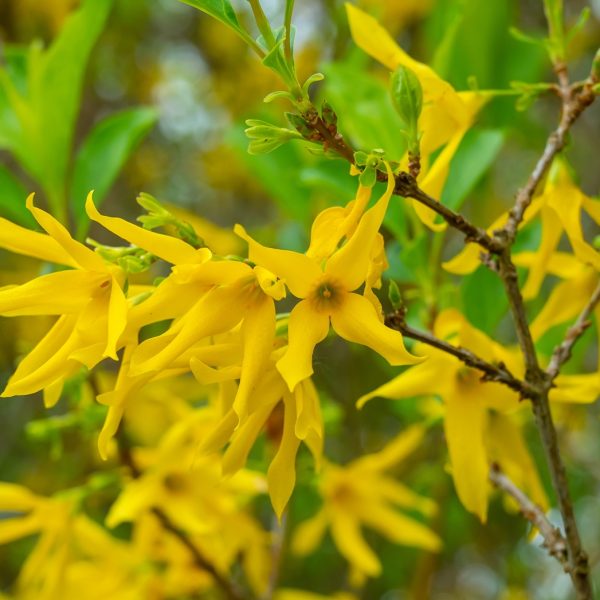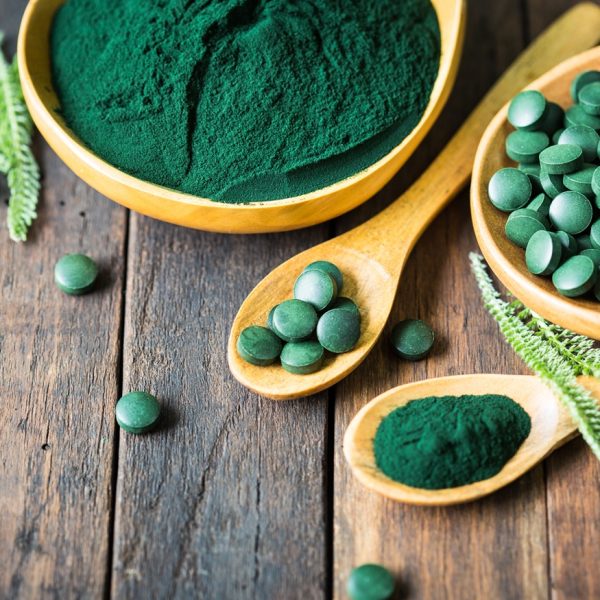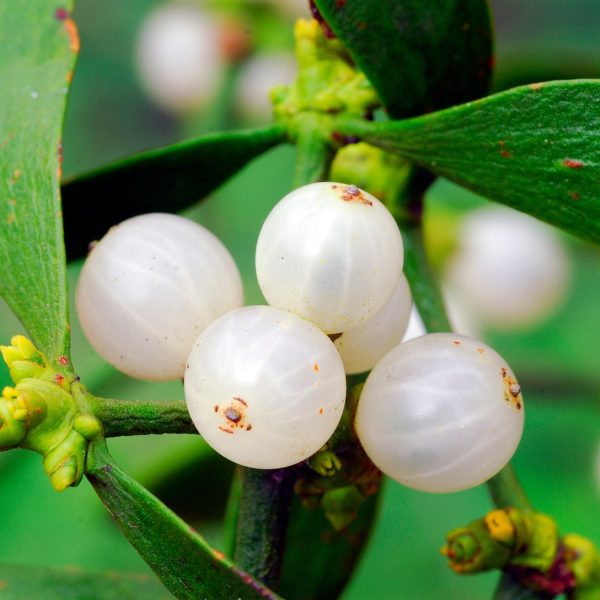There are four different seasons in the menstrual cycle, all with different needs and powers. This article explains how you can work with them to optimise your wellbeing.
The menstrual cycle

Have you ever wondered why you have felt a particular way only for your period to arrive and you have an ‘ah ha’ moment and think “now it all makes sense!” Understanding our cycle is important for many reasons, keeping an eye on our overall health, tracking where you are in your cycle and having a bit more control to plan things when we are at best capacity to tackle them.
I like to use the seasons as an analogy for this because it is something so familiar to us it’s easier to remember than perhaps the more clinical descriptions. How we feel during our cycle directly correlates with the seasons too.
You might think – like I did when I first started learning about this – that it’s just oestrogen and progesterone that are the key players of your cycle. In fact, there are several hormones on the go, and I hope this gives you more of an idea about the intricate dance that plays out each month.
Our cycle is seen as something primarily for procreation, this is indeed a wonderful thing it does, but our bodies are more than that, we need all these moving parts to work regardless of whether or not a pregnancy happens. I hope in my work to shine a light on how damaging that narrative can be as it can hinder women receiving the help they need.
How your cycle works

Your cycle actually starts in your brain, the hypothalamus, it sends pulses of gonadotropin-releasing hormone (GnRH) to the pituitary gland, this then starts to release follicle stimulation hormone (FSH) and luteinising hormone (LH) which communicate to your ovaries and follicles.
The following is an overview, your cycle is pertinent to you, things might not completely align with a 28-day cycle, which is completely ok. A ‘normal’ cycle is anywhere from 22-35 days, and as long as you are roughly the same number of days each month by a day or two that is a happy cycle. If it changes drastically say 24, 30, 25 days then this is indicative of something not being quite right with your cycle. It would be worth getting that checked out with your health care provider.
Your period is always day one of your next cycle, you want to make sure that it is in full flow, and you aren’t counting any spotting days that might happen before your period. Charting can be a wonderful way to get to know your cycle you can find out more about that on The Well Woman Project Blog.
Spring: Follicular phase pre-ovulation

The spring part of our cycle is where your hormones are climbing back up again after your period getting your body ready for ovulation. You might find your energy returning and just like spring you are ready to maybe put some brighter clothes on, and head back out in the world again.
You might find that your clarity comes back, you are feeling more confidant and just want to pick back up where you left off before your period. As spring sees life coming back again with all the buds and flowers, so too are you. Often people find they are full of ideas and creativity in this stage (sometimes a little too much and extra grounding is needed!).
The reason for this shift is that oestrogen is on the rise, and this is the action taker, mover, shaker and fiery hormone. Testosterone is also rising – this is thought to be a male hormone, it isn’t, it’s produced in all humans. It helps to maintain and build muscle, bone density and boost libido. We have several different types of oestrogen but our super-duper one is oestradiol and is only made in the ovaries.
FSH is also building at this point in your cycle, it does what is says on the tin, stimulates your follicles to get an egg ready and mature, as it stimulates the follicles, and an egg begins to form this lead follicle then produces oestrogen. Once the oestrogen has met its peak, FSH and LH take over once more to nudge the egg over the finish line and for it to be released.
Summer: Ovulation

It’s short and sweet this part of your cycle, very much like the summers can be in the UK! However, in terms of your cycle there is A LOT going on. ovulation is the peak of oestrogen and testosterone; you most likely feel your most confident, can spin all the plates and feel on top of your game. Very much like summer, we are out and about, the days are longer we are wearing less, socialising more, its lighter so more things get done and the big blue skies lift us up and make it feel that much better.
If you have presentations, talks, or anything that requires you to be sharp as a tac this is the time to plan it into your diary! Your body is at the peak of its game so you might as well take advantage of that in other areas of your life! In the summer you walk with more swagger.
Ovulation seems a bit of a non-event to be honest as it only lasts a matter of a day or two, but it really is where it’s all at, it’s how we make hormones and if it isn’t happening for you that is a big problem for your whole health. This is where it all comes together, all the hard work your body has been doing to get you here, the dance of the hormones all weaves together and makes Ovulation the sensation it is.
Autumn: Luteal phase (pre menstruation)

When autumn kicks in the evenings draw darker and generally, we cling to the notion of the summer, we don’t want it to get colder and be indoors, we long for the lazy days of the summer months and want to keep going with that intensity which just isn’t possible, we must harvest and put things away until the next year.
Almost every woman I have worked with hates the autumn part of their cycle, everything about it is a struggle and the fight to keep on going rather than give into it is where most of us struggle. To be plain and simple our body just doesn’t have the capacity to keep functioning in the summer mode during autumn. Summer is for summer and autumn is for autumn –when you think about it, you can’t do all the thing you did in summer in autumn and vice versa. Winding down in autumn, closely followed by a brief hibernation in winter, allow us to be fully rested making us have more energy for spring and summer.
I can’t stress enough how paring back on the expectation you have for yourself here is paramount, if we are trying to do all that we were capable of with a full tank why do we think we can do it when it’s half full or nearly empty?!
Immediately after ovulation in the second half of your cycle, FSH, oestrogen and testosterone fall away and LH and progesterone pick up, these are cooler, quieter and laid back hormones. As oestrogen peaks it stimulates the secretion of LH which together with oestrogen and FSH make ovulation happen. LH take over in the second half, it also instructs the corpus luteum to formulate. The corpus luteum is the ONLY way we make progesterone, so it is very important ovulation happens because it sets off a chain of events that is vital to our health.
The corpus luteum is an extra endocrine gland grown every month, it supports a pregnancy until the placenta takes over, if no pregnancy it gets reabsorbed back into the body and a new one will form next month.
Winter: Menstruation

The dark depths of winter, curtains drawn, slouching on the couch watching TV, wanting all the carbs and feeling like we don’t want to talk to another soul. We are inside and don’t want to go out into the night again!
Resting is the key to this part of your cycle and not demanding too much from yourself, you are bleeding, this is a big deal, it depletes our body so we need to allow it to period in peace as much as we can. An early night, delegation and preparing ahead for your needs are ways you can help yourself during this time. We aren’t meant to be roller blading no matter what the adverts suggest! However for many women this period is a time to tune into their intuition and move through emotions. Every season has its own needs and powers, they will become more apparent to you the more aware you are of them.
The quality of our period will be a culmination of many things diet, lifestyle, exercise, toxin overload (emotional and physical) stress, wellbeing and everything in between. Learning to understand your cycle helps you to understand your body as a whole. Periods that are very painful/heavy are NOT normal and could signify an underlying problem like Endometriosis or Adenomyosis. Absent periods or cycles that go on for 35+ days are also not the norm this could be a sign of PCOS (polycystic ovarian syndrome) These conditions can take a long time to diagnose partly due to this normalisation of it being ok that periods are a nightmare, it’s always best to get this checked out.
































